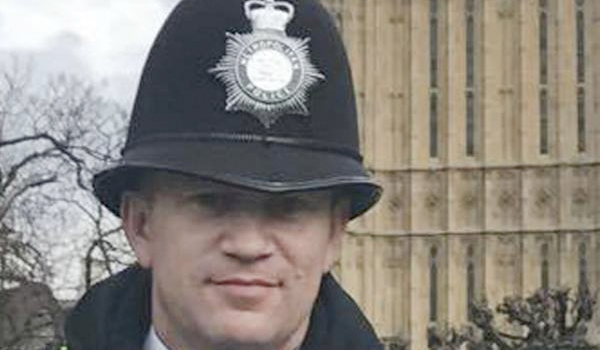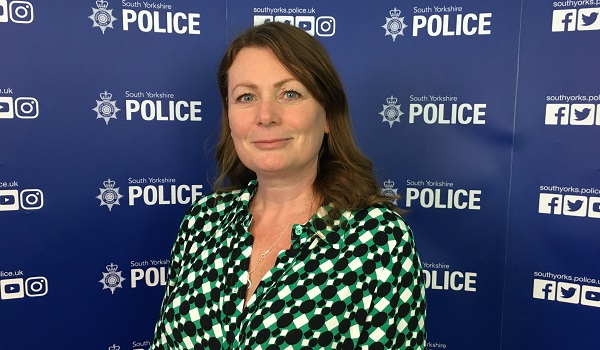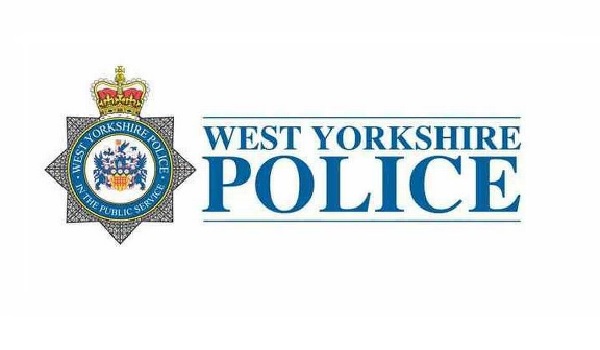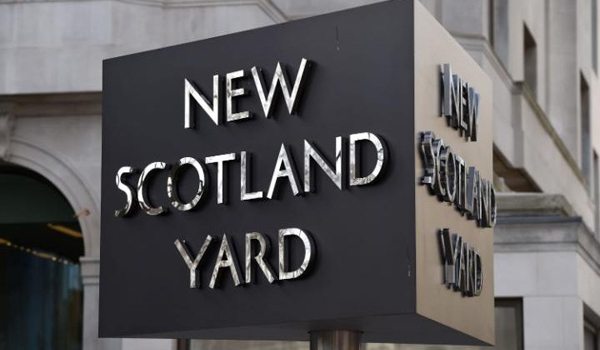Action plan to address race disparity in policing unveiled
Chief constables across England and Wales have committed to become an anti-racist police service and to explain or reform race disparities under the Police Race Action Plan released today by the National Police Chiefs’ Council (NPCC) and the College of Policing.
The plan aims to address the significantly lower levels of trust and confidence among some black people and the race disparities affecting black people that policing cannot currently fully explain.
Among the issues the plan aims to address are that:
- Black people have significantly lower than average rates of confidence in their police force, 64 per cent compared with an average of 74 per cent. Among black Caribbean people the rate is 54 per cent. This is echoed in the Government’s Inclusive Britain Report;
- Police powers including stop and search and use of force are disproportionately applied to black people. Latest national data shows that black people are almost nine times more likely to be stopped and searched than white people and the rate at which we used force was five times higher for people we perceived to be black; and
- Policing lags behind almost every part of the public service as an employer of choice for black people. Just 1.3 per cent of police officers are black, compared with 3.5 per cent of the wider population and there have only been two black officers who have reached the ranks of chief constable or assistant commissioner in policing’s history.
Chief Constable Sir Dave Thompson, senior responsible officer for the Police Race Action Plan, said: “Much has been done by policing to address racism in the police and society. Policing is more inclusive, more diverse, and more reflective of our communities than we have ever been but equally it still contains racism, discrimination and bias.
“Clearly policing is not unique in this – racism and conscious or unconscious bias is a society-wide problem – but given our powers and essential role in society the standard for policing must be higher.
“Saying that racism, discrimination, and bias still exist in policing – in behaviour but also in policies and practices that have a negative disproportionate impact on black people – is not the same as characterising policing or all its officers and staff as racist.
“The majority of police officers and staff would assert they would not consciously tolerate racism. Racism is prohibited and repudiated in the rules and codes of practice that underpin policing. We need to go further and build an actively anti-racist police service that reflects and protects all communities.
“It’s important to say disparities are not necessarily a sign of discrimination and there may be a range of factors behind a disparity. But we do need to understand the causes, explain them, and reform them where there is not a justifiable reason for the disparity.”
The plan defines anti-racism in policing as tackling racial disparities proactively, accepting them as problems whatever their cause because of the impact they have on Black people.
The Independent Scrutiny and Oversight Board (ISOB), chaired by Barrister Abimbola Johnson, will have a critical role in scrutinising the plan and its delivery. A survey launching today will enable anyone with expertise or an interest in the plan to share their views and shape the final plan.
Key actions as part of the plan include:
- Increasing the awareness and understanding of every officer and member of staff of racism, anti-racism, black history, and its connection to policing through introduction of a mandatory programme of training for all police officers and staff. This is in line with the Government’s Inclusive Britain plan’s recommendations that police recruits have a better understanding of the areas and people they serve, become more representative of their local communities, and benefit from local knowledge and experiences;
- Adopting an ‘explain or reform’ approach to race disparities and developing a new national approach to help forces tackle race disparities in their use of powers including traffic stops; stop and search, use of Taser and other types of force. This will be supported by strengthened governance and oversight of the use of police powers including effective supervision and community scrutiny of police data and body-worn video (BWV) footage of police interaction with black people;
- Reducing racial disparities in misconduct and complaints processes and improving support to black officers and staff. The NPCC will work with the Association of Police and Crime Commissioners (APCC) to review misconduct and disciplinary processes from initial assessment investigation and outcomes and implement changes;
- Trialling and testing methods for better enabling black people to have their voices heard, raise concerns, work on solving problems in their community and provide feedback. Their input will then shape local action plans and they will be empowered to hold their police force to account on their delivery. We will also hear the voices of our black and black heritage officers and staff in a survey – the first of its kind, which will run for annually for the next five years;
- Increased action to address the criminal exploitation of young black men, a group identified as being vulnerable to this form of exploitation, working to disrupt the cycle of victims becoming offenders and ensuring police action is appropriate to their age and exploitation is properly considered;
- Ensuring a good police response to missing persons from black communities – people from black communities continue to be over-represented in missing person numbers, making up 14 per cent of missing person reports while only making up three per cent of the general population; and
- Introducing a national standard across all recruitment and promotion processes to minimise race disparities. Building on the results of a new online assessment process, which has led to a significant improvement in the success rates of black candidates (57.8 per cent) compared wih the previous, face-to-face assessment method (49.2 per cent).
Chief Constable Andy Marsh QPM, chief executive officer of the College of Policing said: “There is a moral and operational imperative to undertake this work. Racism or discrimination of any kind is deplorable, completely unacceptable and should have no place in society and no place in policing.
“This work is central to our crime-fighting mission. The British principle of policing by consent is built on trust and confidence of the public in the police. With that trust comes cooperation, dialogue and crucial sharing of information that is essential for us to tackle crime. That trust is far too low among black people, and we are less effective because of it. That is no longer sustainable. Building trust with black people will mean better policing for all.
“Being anti-racist means it isn’t enough for an individual or organisation to not be racist. It means a commitment to taking action to challenge racial bias and prejudice where it is seen in practice, people, and policies.”
ISOB chair Mr Johnson said: “George Floyd’s murder may have caused an international reckoning with the police but the fact is that there are issues with policing and racism here too. The last few months alone have demonstrated this with a swathe of reports showing the unfortunate extent to which police have mistreated black people.
“Something radical needs to be done to transform the relationship the police have with black communities. Data shows that sadly every aspect of policing produces or at the very least replicates racial disparities and racism: arrest; handcuffing; stop and search; strip searching; use of Taser; remands in custody; and charging, to name just a few.
“When black people are victims of criminality there have been unacceptable instances of them being let down and even actively harmed by the police who are meant to serve them. When black people join the police, they fare worse than their white colleagues in terms of recruitment, disciplinary action, retention and promotion.
“My board will be working hard to push the police to deal with their problems head on. Policing cannot do that on their own, no one can solve a cultural issue without intervention. My Board and our Accountability Forum will ensure that the police do not ‘mark their own homework’; we will ensure that the police listen to anti-racism organisations, local communities and individuals.
“We will ensure that the police works transparently when doing so. If we are not satisfied with the way the programme responds to feedback, consultation and data, then we will say so.
“This interim plan needs thorough and trustworthy public engagement, which we will make it our duty to closely scrutinise and monitor.”
Inspector Andy George, president of the National Black Police Association (NBPA), said: “Racism and discrimination has blighted the hard work that the majority of police officers and staff do a daily basis to detect crime and prevent harm in society. The failure to deal effectively with racism in police systems and processes has allowed those who wish to bully and discriminate to operate in the knowledge that they are seldom held to account. This has been particularly visible in the last few years and demonstrates the need for long term and continuous action.
“The murder of George Floyd was a visual representation of the consequences of failing to tackle racism in all its forms. This action plan was the commitment from chief constables to tackle the lack of trust and confidence in our black officers, staff, and communities.
“The NBPA have a unique role in developing long lasting relationships between the police service and the communities we come from, and we welcome the part we have played in helping to shape some of the actions in the plan. We hope this collaboration of lived experience and policing is continued as the plan is implemented at a local level.
“All chief constables have signed up to this action plan and the NBPA will be working with the ISOB to ensure that real change is delivered in all police forces across England and Wales.
“The evidence base and requirement for change has been long-standing and now is the time for action to follow the words and sentiments from police leaders.”
Police Superintendents’ Association President Paul Fotheringham: “We welcome the publication of the Race Plan of Action, which will be a fundamental part of building a police service that is legitimate, trusted and reflective of its communities.
“The plan shows a commitment to continuous listening from the voices we need to hear, in a way that our service has not previously achieved. I hope that our staff, our communities and our scrutineers will be open and honest with us – holding us to account whilst also informing the way that we adapt and re-develop policing to become truly anti-racist.
“Whilst evidence and insight show us that racism undoubtedly exists within policing, I do believe that the vast majority of officers and staff do not and will not condone racism or discrimination of any kind, and are wholly supportive of this pro-active, positive action. It is essential however, that we see measures on outcomes quickly, so this doesn’t become intention without impact. It must inform structural change, leading to long-lasting difference.
“As superintendents, we have dual roles within this work, as affected members of the workforce and as leaders tasked with driving change. Our message to our members will be that we will expect authentic and interested leadership, so that we can proudly be the change we wish to see.
“Whilst this plan has been in development, we have moved quickly on the development and delivery of our own work to support inclusion and valuing difference. We know that just 5.1 per cent of our members are from black, Asian and minority ethnic groups – something that must change.
“Year one of our Future Supers programme, which supported officers and staff from black, Asian and minority ethnic groups at inspector rank and above with their career development, has received extremely positive feedback. I’m therefore pleased to announce that year two of the programme will begin in July and will be open to officers from every under-represented group. Whilst tackling racial disparity is a clear priority, we must also respond to the lack of representation we see at senior level from colleagues from every diverse background.
“In addition, our Peer Support programme continues to grow, offering our members access to a trained peer supporter from within our association, and we have shared the insight and experience of our members to influence the College of Policing’s leadership plan, which will be key in driving widespread change.”
Metropolitan Police Service Acting Commissioner Sir Stephen House said: “The Met is committed to becoming an actively anti-racist organisation that can be trusted by everyone in London.
“Since the terrible murder of George Floyd in the United States and the wave of Black Lives Matter protests two years ago, we’ve been focusing on a number of key areas.
“These include ensuring racist behaviour has no place in the Metropolitan Police Service and increasing diversity in the organisation through recruitment and career progression.
“We’re working hard to increase our officers’ understanding of different cultures and the history of policing different communities, particularly black communities.
“We recognise the Met is not yet free of discrimination, racism or bias, but we are changing to build a Met which is.”
The APCC said it welcomed the “fresh energy that is now being invested by chief constables into a commitment to tackle the disparities faced by black people in policing and criminal justice”.
In a joint statement, APCC equality, diversity and human rights joint leads Alison Lowe OBE and John Campion said: “We are encouraged that the NPCC and College of Policing will be working with the public on this important issue, and hope there will be widespread engagement to ensure the views of the diverse communities we serve are fully reflected.
“We additionally welcome the way in which the APCC is being asked to engage by monitoring and scrutinising the progress and outcomes set out in the NPCC and the College’s Plan.
“Police and crime commissioners (PCCs) are committed to ensuring that black communities can have greater trust and confidence in their local policing service. Making progress locally is crucial.”
As PCC for West Mercia, Mr Campion added that he made a commitment in his Safer West Mercia plan to ensure “all individuals and communities are dealt with fairly, equally and respectfully”.
He said: “Disparities and inequalities still exist in our communities and in policing. We know that confidence in the police is low in black communities and I am working with our communities and the force to challenge and change this.
“We still have a long way to go but listening to the voices of black communities, we can advance equal opportunities for all.”







